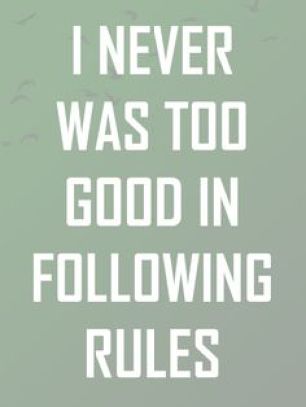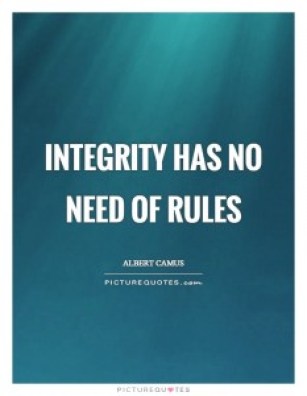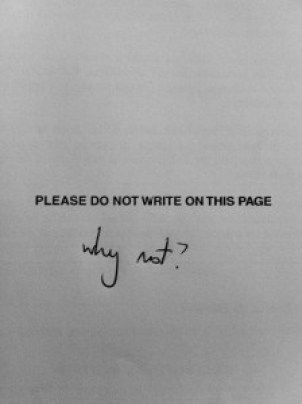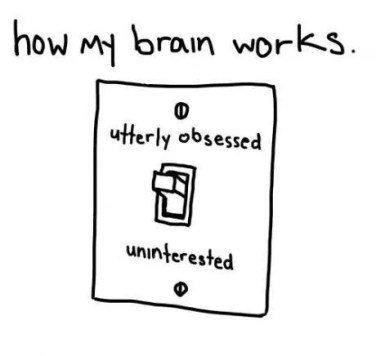
==================
“One is often unconsciously surrounded by one’s own personal reality.”
―
Pawan Mishra
============
“To be ignorant of one’s ignorance is the malady of the ignorant.”
—–
Amos Bronson Alcott
===========
“People who have had little self-reflection live life in a huge reality blind-spot.”
―
Bryant McGill
===================
Ok.
 We all have blind spots about our self.
We all have blind spots about our self.
And I mean “we” as in everyone — 100% of us.
And they are almost painful to watch occurring in anyone – particularly in someone you like. With someone you don’t like? It still makes you sit back and think “what are my blind spots?”
Oh.
That sitting back thing.
Judging the events of the past we have a tendency to fall victim to what behavioral economists call “the hindsight bias.”
It is unhelpful because it implies that if we were just smarter in the present, we could see clearly enough into the future to avoid stupid mistakes. But that is rarely the case. The data available in the present are wildly contradictory, and many outcomes seem plausible.
Regardless.
We also have psychological blind spots – aspects of our personalities that are hidden from our view. These might be annoying habits like interrupting or bragging, or they might be deeper fears or desires that are too threatening to acknowledge. Although it’s generally not pleasant to confront these aspects of ourselves, doing so can be very useful when it comes to personal growth, and when it comes to improving our relationships with others – there is undoubtedly something we do that, unbeknownst to us, drives our significant others, roommates, friends, or coworkers a little crazy.
I thought about this mostly because of Donald J Trump. while I have never met the man he seems oblivious to reality – the world and himself.
=================

President Trump in a new AP interview boasted that he has delivered CBS its best ratings “since the World Trade Center came down.”
After being asked about his relationship with voters and lawmakers across the aisle, Trump pivoted to the high viewership numbers his national TV appearances bring in: “It’s interesting, I have, seem to get very high ratings… You know [Fox News Sunday host] Chris Wallace had 9.2 million people, it’s the highest in the history of the show. I have all the ratings for all those morning shows. When I go, they go double, triple. Chris Wallace, look back during the Army-Navy football game, I did his show that morning. It had 9.2 million people. It’s the highest they’ve ever had.”
He then bragged about his ratings on CBS’s Sunday show Face the Nation:
“[Host John] Dickerson had 5.2 million people. It’s the highest for Face the Nation or, as I call it, ‘Deface the Nation.’ It’s the highest for ‘Deface the Nation’ since the World Trade Center.
Since the World Trade Center came down. It’s a tremendous advantage.”
He then immediately transitioned to railing against “fake media”—save for Fox News—treating him “unfairly.”
================
Whew.
Trump doesn’t seem to realize that his ratings get a big boost because people don’t want to miss it if he says something asinine or just plain stupid. He is oblivious to the fact that ratings are not an objective indicator of quality but rather indicative of interest <or entertainment>. And, as 99% of us know … interest does not necessarily equal “quality, trust or likeability.”
NASCAR wrecks drive ratings but they don’t convey a positive attribute.
Everyone in marketing, those who do it professionally, know the difference between attention & interest as well as why it is important to look at the relationship between positive approval, an negative approval, and the interest scores <and you are a fool if you do not look at those scores>.
Anyway.
I feel sorry for people who are oblivious to their blind spots.
And, yes, oblivious is different than ‘do not see.”
The difference between the two are in fact the ability to be aware, i.e., totally oblivious is to be not capable of awareness.
‘Do not see’ means you could be aware but you choose to not be aware <what you elect to focus or not focus on>.
==========
“The worst bullies you will ever encounter in your life are your own thoughts.”
—-
Bryant H. McGill
===========

I imagine this raises the painful reflective question “are we even capable of seeing ourselves as who we really are”?
Yikes.
That’s a painful question.
Psychology has thought about this question a shitload and they use words like discrepancy between self-awareness <representing how we see and describe ourselves> and external perception <representing how others see and would describe us>.
This comes to Life in a way I believe 99% of us can relate to … times where someone perceived you totally differently than you perceived yourself “oh, I am not that way at all”>.
Or maybe think about it this way.
You meet someone and assess and create a perception and … well … it is totally different than the self-awareness of that person.
We all do this crap.
Psychologists have even designed a “window into your soul” called the Johari-Window. It is one way to illustrate the difference between self-awareness and external perception. It represents a graphic model illustrating conscious and unwitting personality– and behavioral characteristics developed by the U.S. social psychologists Joseph (Jo) and Harry (hari) Ingham. The Johari window looks like this:
——

—–
The “Arena“ represents that part of our personality and our behavior which we are fully aware of. The part of ourselves we display openly and without hesitation when in the company of others or how we would describe ourselves if asked.
The section “Façade” covers everything we hide from others because we believe that it should remain private. It includes secret wishes, for instance or thoughts we don’t feel like sharing. Understandably the extent of this area varies and depends on the company we happen to be keeping at the time. When we are with our partner or possibly our best friends it may be very small because we share more of ourselves with people we trust than with those with whom we may not be all that close. Regardless, with every person there is always something left over that is private and he/she alone knows about him/herself (and that is just fine!).
The area “Unknown” covers everything in our subconscious and therefore is not immediately accessible but still has a considerable impact on our thoughts and behavior: unconscious fears, repressed conflicts, traumata, urges, instincts and much more. According to Sigmund Freud this part covers 80 – 90% of everything determining our everyday behavior.
Even if we don’t want to go all that far, everyone knows that there are many situations when rational and conscious thinking and behavior play a very secondary role and that another part of us somehow takes over. The process of falling in love is an excellent example – or have you ever totally rationally and judiciously chosen your partner? We are unaware of our subconscious just as it is not obvious to others (well, the consequences sometimes are). We will never be able to get to the bottom of it ourselves, it would take considerable therapeutic reflections to come even close.

The last Quadrant, the “Blind Spot” is different. Although we can’t spot it on our own (just as we can’t see our face without a mirror), others can see it quite well and are able to tell us (acting as our mirror, so to speak). Even though we are not aware of it, the “Blind Spot” harbors habits, preferences, dislikes, prejudices and the like, all things that are clearly apparent to those with whom we deal. At best their reports will provide us with information about ourselves, in that way reducing our “Blind Spot” and therefore helping us to work on ourselves. If there is something in my “Blind Spot” I would like to change, others have to make me aware of it first. Alternatively others may discover competencies and skills in it of which I did not think to be capable.
In addition to this window if you google “oblivious” you will see there are gobs of psychological writings and ‘awareness offerings’ available if you ever want to professionally explore you blind spots.
Here is what I know.
We are all oblivious to some extent — some more than others.
Being oblivious to some extent can be dangerous.
Lack of self-awareness is never good.
I think 99% of us know we have some aggravating flaws & personal quirks … we are not oblivious to them instead we simply decide to overlook them as the ‘imperfections that make us who we are.’ At the same time … those same 99% of people do have blind spots — the shit they cannot see that others see. That takes a little self work to get a grip on if we choose to accept this.
Oh.

And then there are the 1% …those who are completely oblivious to what they do and how people see them.
Let’s call them the ones inflicted with is the malady of the ignorant <to be ignorant of one’s ignorance>. I am not sure they are redeemable.
I say that because to be completely oblivious either takes a shitload of work or you are just an arrogant egotist or you have some mental disorder that permits you to constantly live in some alternative universe in which you are the God.
I do my best to avoid the 1% and realize, as part of the 99%, I should do my best to improve my own sight of myself.



 not noticed; you really are the president … now.
not noticed; you really are the president … now. and you are not drunk and for some reason your wife has not left you. I have given up trying to convince you that words matter <even the ones you make up> so maybe we could have you work on thinking a little less like an idiotic bitter drunk husband and maybe have you think about the fact you really are a President who shouldn’t be bitter about anything and whose wife has not left him <yet>.
and you are not drunk and for some reason your wife has not left you. I have given up trying to convince you that words matter <even the ones you make up> so maybe we could have you work on thinking a little less like an idiotic bitter drunk husband and maybe have you think about the fact you really are a President who shouldn’t be bitter about anything and whose wife has not left him <yet>.
 and maybe the one dollar bill can help, well, center you a little.
and maybe the one dollar bill can help, well, center you a little.


 On Memorial Day, a day on which we honor the ones who gave ‘their full measure of devotion’, I pulled out a piece that has been sitting in my draft folder for quite some time.
On Memorial Day, a day on which we honor the ones who gave ‘their full measure of devotion’, I pulled out a piece that has been sitting in my draft folder for quite some time.
 What would I do?
What would I do?
 Let me summarize all the detail I shared <because I dint think everyone would go to the highlighted article.
Let me summarize all the detail I shared <because I dint think everyone would go to the highlighted article.
 relationship. They spend more and we can spend less <make some cutbacks>.
relationship. They spend more and we can spend less <make some cutbacks>.

 When you are young if you find the wrong person that person can encourage the wrong things even if they mean well.
When you are young if you find the wrong person that person can encourage the wrong things even if they mean well.
 We solved problems in isolation, deep thought, and through introverted reflection.
We solved problems in isolation, deep thought, and through introverted reflection. in their heart of hearts, that they will remain lost forever.
in their heart of hearts, that they will remain lost forever.
 with media and effectively communicating your message>.
with media and effectively communicating your message>. value thru contrast.
value thru contrast.
 Empty space to a listener/questioner/debater is like sugar for ants. Our tendency is almost always to make problems look bigger and successes more successful … it makes us look more heroic. But in our tendency to do so it actually … well … shrinks us. The truth is many of us think our jobs are fairly mundane and when discussing what we do, and have done, publicly we think “who the hell wants to hear this?” and then head down the path to make what we do, or did, look less mundane and more challenging or exciting.
Empty space to a listener/questioner/debater is like sugar for ants. Our tendency is almost always to make problems look bigger and successes more successful … it makes us look more heroic. But in our tendency to do so it actually … well … shrinks us. The truth is many of us think our jobs are fairly mundane and when discussing what we do, and have done, publicly we think “who the hell wants to hear this?” and then head down the path to make what we do, or did, look less mundane and more challenging or exciting. spoke I watched Trump shrink before our eyes and America along with him.
spoke I watched Trump shrink before our eyes and America along with him.

 in the Trump white house personnel.
in the Trump white house personnel.
 Most people learn this as soon as they move from group management to department management <you cannot fire everyone and rehire only your people> and absolutely learn this lesson as soon as you move into the C-level positions.
Most people learn this as soon as they move from group management to department management <you cannot fire everyone and rehire only your people> and absolutely learn this lesson as soon as you move into the C-level positions.


 Because if they can work together well than there is a better chance that the organization will not do stupid shit even if you make a stupid decision, your crazy will come to life as not-so-crazy pragmatism and knee-jerk spontaneous crazy asshat tweets simply get absorbed into seamless actions which make the tweets look a little less spontaneous, a little less knee jerk, a little less crazy … but still asshat because that is who you are.
Because if they can work together well than there is a better chance that the organization will not do stupid shit even if you make a stupid decision, your crazy will come to life as not-so-crazy pragmatism and knee-jerk spontaneous crazy asshat tweets simply get absorbed into seamless actions which make the tweets look a little less spontaneous, a little less knee jerk, a little less crazy … but still asshat because that is who you are. does.
does.
 We have a shitload of regulations, laws and rules to abide by every day.
We have a shitload of regulations, laws and rules to abide by every day. tend to believe is ‘integrity driven behavior’ and with each push what is acceptable becomes broader and broader.
tend to believe is ‘integrity driven behavior’ and with each push what is acceptable becomes broader and broader. But let’s remember … most times norms reside within what is a larger legally acceptable behavior.
But let’s remember … most times norms reside within what is a larger legally acceptable behavior.
 But not everyone thinks that way.
But not everyone thinks that way.
 knows where they are going and how they will go about doing it.
knows where they are going and how they will go about doing it. stew over all the long term type shit … but … we all know the holy grail of business success actually resides in ‘windows of opportunity.’
stew over all the long term type shit … but … we all know the holy grail of business success actually resides in ‘windows of opportunity.’
 exactly match up with the standard “this is how you are supposed to do it” management guides. Waiting for opportunities isn’t something that they teach you in ‘how to aggressively beat the crap out of your competition in the industry” school.
exactly match up with the standard “this is how you are supposed to do it” management guides. Waiting for opportunities isn’t something that they teach you in ‘how to aggressively beat the crap out of your competition in the industry” school.
 your dismay you look around the room and another frickin’ window is open.
your dismay you look around the room and another frickin’ window is open. It’s all about uncovering the most relevant time to be relevant <and interesting>. Pick the wrong time and you waste $’s because the consumer just doesn’t care. Be interesting at the right time and the brand becomes relevant <and sales increase>.
It’s all about uncovering the most relevant time to be relevant <and interesting>. Pick the wrong time and you waste $’s because the consumer just doesn’t care. Be interesting at the right time and the brand becomes relevant <and sales increase>. the other.
the other.
 Oh.
Oh. In my mind it is more about fixing the environment of the flower does not grow.
In my mind it is more about fixing the environment of the flower does not grow.
 That doesn’t mean a ‘simple’ stimulus is unable to generate a simple response.
That doesn’t mean a ‘simple’ stimulus is unable to generate a simple response. regard to communication.
regard to communication.
 to be calculated communicating.
to be calculated communicating.
 Things are said that just may not be exactly right.
Things are said that just may not be exactly right. A leader must hold the center verbally. It can sometimes be held with vision and soaring rhetoric but more often it is captures in the calculated pragmatic words which are easily carried by those on the edges out beyond the organization.
A leader must hold the center verbally. It can sometimes be held with vision and soaring rhetoric but more often it is captures in the calculated pragmatic words which are easily carried by those on the edges out beyond the organization. fraying at the edges of the organization.
fraying at the edges of the organization.